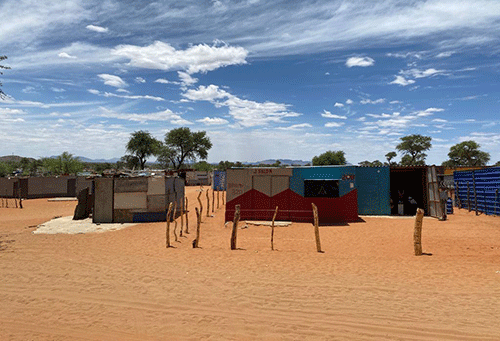The town of Rehoboth is finding ways to address land and housing issues to help low-income earners struggling with affordability.
Over the weekend, the Rehoboth town council held a land management and housing development conference with stakeholders to foster inclusivity and provide viable solutions to the land and housing issues, while also seeking investments to develop the town.
Located 90 kilometres from Windhoek, Rehoboth is one of the towns in the country abundant with land and untapped investment potential.
However, mayor Amanda Groenewaldt stated that much of the land lacks essential services, contributing to a backlog of residents in need of housing.
“We are looking for the availability and affordability of land for our people, and also invited investors to invest in our town,” she told New Era.
The town harbours two informal settlements, housing nearly 4 000 people who have occupied the land illegally. The town council is currently undertaking initiatives to grant ownership of these plots to residents at a more affordable price.
Groenewaldt said the price mainly for the servicing of land is N$10 500, and residents can pay it off in instalments of N$200 per month, if they have deposited N$ 3 500.
After finishing paying it off, they will be granted title deeds.
“They will not pay for the erf but for services, which will come to N$10 500, and will especially be for water and electricity. The servicing of the land is very expensive, and more money will come from the council’s coffers,” she added.
Speaking at the conference, Deputy Minister of Urban and Rural Development Evelyn !Nawases-Tayele emphasised the importance of finding lasting solutions to the mushrooming of informal settlements, and the lack of delivery of affordable serviced land and adequate housing.
She cautioned that it is equally important that there be tangible and implementable interventions.
“Rehoboth, like other authorities, is faced with challenges like illegal land occupation and rural-urban migration. Therefore, it is imperative to embark on initiatives and involve other role-players to address these challenges,” the deputy minister said.
In an interview with NBC, the municipality’s town planner Freddy Shihepo said the main challenge contributing to the land and housing crisis is the growing population, followed by a large section of low-income groups.
“We have to look at the cost of developing land and offer services, which is very expensive. But we are able to bridge that gap and provide land to those in need,” he noted.
Debt
While the town works towards resolving issues for its residents, Groenewaldt expressed concern about unpaid municipal bills, which add another challenge to the town’s plate.
A debt of N$230 million, primarily for water, is owed to service providers Nampower and Namwater. Residents are accountable for N$70 million in electricity bills.
To recover these amounts, the town has enlisted two temporary debt collectors, who will engage with residents to reach agreements.
Additionally, the town is waiving interest for residents in debt, providing a 12/24-month window to settle their capital debt.
“There is no more interest on late payments for people in arrears, and that is how we are planning to help our people,” Groenewaldt noted.
The conference was attended by representatives from both the legal and financing sectors, housing and land developers, local authorities and many other stakeholders.
– ashikololo@nepc.com.na
Caption:



